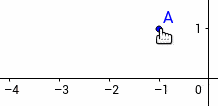Snap's Upcoming Lightweight AR Glasses Set for 2026 Consumer Launch

Snap Inc., the parent company of Snapchat, has announced plans to release its new line of lightweight augmented reality (AR) glasses, named Specs, targeting consumers in 2026. This announcement was made by CEO Evan Spiegel at the Augmented World Expo held in Long Beach, California, on June 10, 2025. The Specs will be a significant pivot for Snap as it attempts to re-enter the consumer AR market after several years of absence since its original Spectacles launch in 2016, which garnered lackluster sales.
The Specs are designed to be smaller and lighter than their predecessors, making them more discreet for everyday use. They will feature see-through lenses capable of displaying digital graphics overlaid on the real world, thereby enhancing users' experiences through augmented reality. According to a spokesperson from Snap, the glasses will also incorporate an AI assistant that can process audio and video, thus providing a more interactive experience.
The significance of Snap's upcoming AR glasses lies in the competitive landscape of augmented reality technologies. The AR glasses market has seen increasing interest from major tech players, including Meta and Google, both of which have announced their own AR products. Meta is expected to launch its AR glasses, codenamed "Hypernova," later in 2025, while Google is collaborating with various partners, including Warby Parker and Samsung, to develop its Android XR smart glasses.
Dr. Emily Tran, a professor of computer science at Stanford University, emphasized the competitive nature of the AR market, stating, "Snap's ability to differentiate itself will be crucial. The success of Specs will depend not only on hardware improvements but also on the ecosystem of applications that can run on them."
Snap has invested significantly in its SnapOS developer ecosystem, which allows developers to create AR experiences known as Lenses. Many of these applications will be compatible with the new Specs, potentially giving Snap an edge in attracting developers and users. Dr. Raj Patel, an expert in AR technology at the Massachusetts Institute of Technology, noted, "The integration of AI with AR could set Snap apart, especially if they can deliver practical and innovative applications that resonate with everyday users."
During the announcement event, Spiegel showcased several use cases for the Specs, including an application named "Super Travel," which translates foreign signs and menus, and another called "Cookmate," which offers cooking guidance based on available ingredients. These examples highlight Snap's intention to make AR glasses not just a novelty but a practical tool for everyday tasks.
Despite the excitement surrounding the Specs, several uncertainties remain. Snap has yet to disclose the pricing, distribution channels, and specific design details of the glasses. As the company attempts to navigate the AR landscape, it must also address the challenges of consumer perception and usability that have historically plagued AR devices.
Industry analysts suggest that Snap’s pricing strategy will be pivotal in determining the Specs' market success. "If Snap can offer a competitive price point while delivering on performance and comfort, they might successfully capture a segment of the consumer market that has been elusive for AR glasses," commented Lisa Wong, a market analyst at Gartner.
As Snap gears up for the launch in 2026, the implications of its AR glasses extend beyond mere consumer electronics; they signal an evolving landscape in which augmented reality continues to integrate into daily life. With the global AR market projected to reach $198 billion by 2025, according to a report by the International Data Corporation (IDC), Snap's entry could potentially reshape consumer expectations and drive innovation in the sector.
In conclusion, while Snap's Specs appear poised to reinvigorate its position in the AR market, continued advancements, consumer acceptance, and strategic execution will ultimately determine the product's success. The coming year will be critical for Snap as it prepares for its consumer launch, aiming to turn AR glasses from a futuristic concept into a tangible reality for everyday users.
Advertisement
Tags
Advertisement





